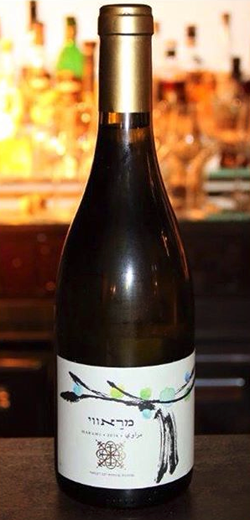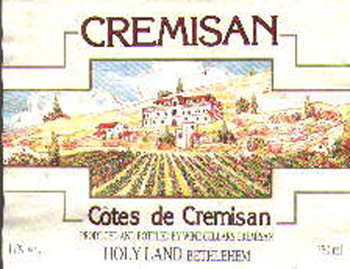Date£º
2015-11-02 16:26 Source£º
thedrinksbusiness Author:
Patrick Schmitt Translator:
Israel has released its first commercial wine made from a grape variety that is indigenous to the area.

The first ever varietal Marawi, which comes from the Recanati Winery in the Hefer Valley
Called Marawi, the variety was discovered over three years ago following research into the native grapes of the Holy Land lead by Dr. Shibi Drori, who also owns the Gvaot Winery, located between the Israeli settlements of Shiloh and Eli.
According to Haaretz.com, since 2011, Drori (with the help of researchers at Ariel University in the West Bank) has identified almost 120 grapes, including 20 that could be suited for winemaking, and two that are unrelated to any other varieties in the world ¨C white grapes Hamdani (otherwise known as Marawi) and Jandali.
Last year, a small winery run by the Salesian Monastery in Israel¡¯s Cremisan Valley made a blend from these varieties.
However, Israel¡¯s first commercial release of a wine from indigenous grapes occurred earlier this month, when the country¡¯s Recanati Winery presented the Marawi wine at Italy¡¯s International Milan Expo.
Recanati¡¯s white Marawi variety is said to be identical to Hamdani, although the Salesian Monastery chose to use the latter name for the native grape.
Recanati¡¯s 2014 Marawi is the product of a partnership between Drori, the winery and a Palestinian vineyard near Bethlehem, and consequently the wine¡¯s label bears the name in Arabic script as well as Hebrew (see picture, left).
Commenting on the wine, Recanati¡¯s Ido Lewinsohn told Haaretz.com, ¡°We believe we created excellent results. Beyond the matter of whether it tastes good, I believe we¡¯ve made history.¡±

Cremisan was the first Israeli winery to use grapes native to the Holy Land
Nearly 2,500 bottles of the wine have been produced and they each retail for 120 shekels ($31). The wine is said to taste of apple and peach and have a refreshing acidity.
Before the discovery of Marawi and Jandali, it was widely believed that Israel had no indigenous wine grapes, although the names of vareities used to make wine in the mid nineteenth century are known. These include for whites: Hevroni, Dabouki, Marawi, Halbani, Sharwishi, Hamdani, Jandali, and for reds: Zeitani, Karkashani, Razaki, Karashi, Baladi ¨C according to Wine Israel.
The three most widely planted varieties in Israel today are Cabernet Sauvignon, Carignan and Merlot, followed by Shiraz, Argaman and Petite Sirah.